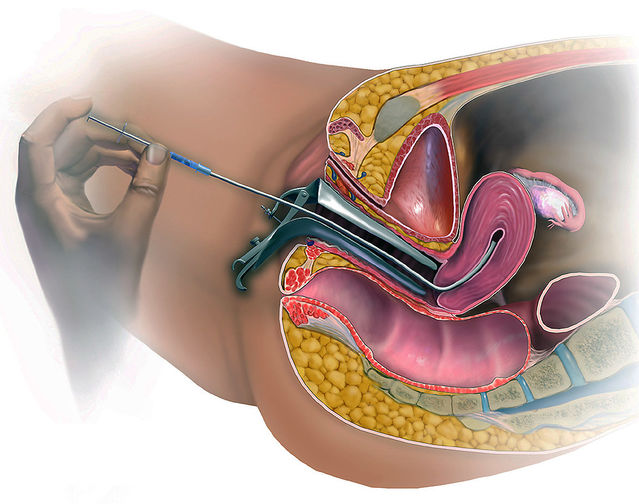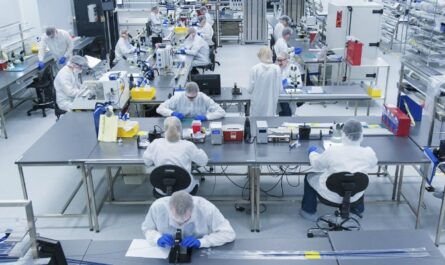The development of synthetic biology tools and techniques have enabled innovative solutions to infertility problems worldwide. By analyzing human reproductive biology at the molecular level, scientists are engineering new therapeutic interventions to enhance reproductive cell function, support embryo viability, and increase pregnancy success rates. Artificial insemination now utilizes sperm activation technologies and manufactured growth factors to optimize egg fertilization and embryo implantation. Researchers are also exploring targeted gene therapies and stem cell treatments capable of reversing conditions like endometriosis, damaged fallopian tubes, or low sperm counts. These emerging assisted reproductive technologies hold promise for expanding reproductive autonomy and facilitating healthy conceptions for populations struggling with medical or social barriers to parenthood.
The global artificial insemination market involves the selection, preparation, and transfer of specially processed semen directly into the female reproductive tract with aims to establish a successful pregnancy. Conventional intrauterine insemination methods utilize cryopreserved or freshly collected donor or partner sperm. More advanced treatments incorporate sperm sorting techniques, culture media supplementation, or intracytoplasmic sperm injection based on specific infertility diagnoses. The market for artificial insemination products and services has grown in tandem with rising infertility rates and societal pressures to start families later in life.
The Global Artificial Insemination Market is estimated to be valued at US$ 9.2 billion in 2024 and is expected to exhibit a CAGR of 8.1% over the forecast period 2023 to 2030, as highlighted in a new report published by Coherent Market Insights.
Market key trends
One of the primary trends driving growth in the artificial insemination market is an increasing preference for assisted reproductive techniques over traditional adoption. Technology advancements now offer higher success rates, more accessibility, and opportunities for single or same-sex parents to conceive biologically related children. Additionally, evolving cultural views toward non-traditional families and single parenthood are generating more demand. Researchers are also making strides optimizing insemination protocols through innovative methods of sperm processing, selection, and handling that may further cement artificial insemination as a front-line infertility treatment option in the future.
Porter’s Analysis
Threat of new entrants: The threat of new entrants in the artificial insemination market is low as it requires high investments and technical expertise to operate.
Bargaining power of buyers: The bargaining power of buyers is moderate as there are few key players operating in the market and buyers have limited options to choose from.
Bargaining power of suppliers: The bargaining power of suppliers is low as raw materials used in artificial insemination are commoditized and available from numerous global suppliers.
Threat of new substitutes: The threat of new substitutes is low as there are limited alternative options for artificial insemination.
Competitive rivalry: The competition in the artificial insemination market is high among the key global players.
Key Takeaways
The global Artificial Insemination Market Demand is expected to witness high growth over the forecast period of 2023 to 2030. The global artificial insemination market is estimated to be valued at US$ 9.2 billion in 2024 and is expected to exhibit a CAGR of 8.1% over the forecast period 2023 to 2030.
North America currently dominates the market supported by growing medical tourism and increasing prevalence of infertility. This is attributed to factors such as increasing infertility rates, acceptance of advanced technology, and growing medical tourism in the region. Asia Pacific is anticipated to witness the fastest growth rate owing to rising disposable income, increasing awareness about artificial insemination services, and expansion of key players in emerging countries.
Key players: Key players operating in the artificial insemination market are Pride Angel, Irvine Scientific, Hi-Tech Solutions, Rinovum Women’s Health, LLC, TenderNeeds Fertility, Conceivex, Inc., Labotech GmbH, Hamilton Throne Ltd., Biogenics Inc., Nikon Instruments Inc., Zander scientific Inc., and Surelife Pte Ltd. Pride Angel and Irvine Scientific collectively hold over 30% of the market share.
*Note:
1. Source: Coherent Market Insights, Public sources, Desk research
2. We have leveraged AI tools to mine information and compile it



